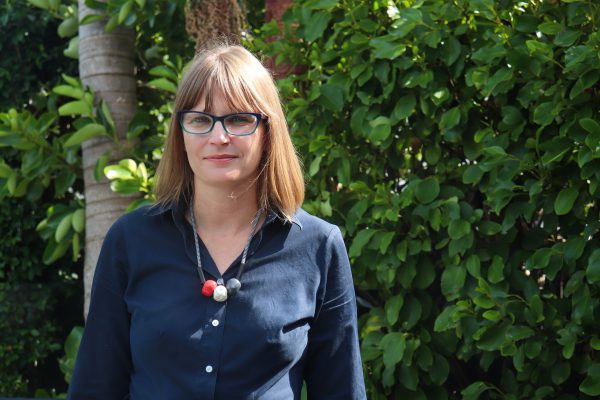/arc-anglerfish-syd-prod-nzme.s3.amazonaws.com/public/C2ZSK2TVJFG4DNCN6F55U4Z46I.jpg)
They sound like stories from the pages of an espionage thriller: Governments threatening freedom of speech, meetings in exotic European cities with exiled authors, battles with institutions who determined livelihoods and spats about the best way to face these challenges.
It’s not the plot of a new novel but the rather more mannered story of New Zealand literature in the 1980s and 90s.
The NZ Society of Authors (PEN NZ Inc) has launched a new podcast series which draws on interviews with more than 20 writers including Gordon McLauchlan, Lauris Edmond, Kevin Ireland, Tessa Duder, Witi Ihimaera and Joy Cowley.
Hosted by Karyn Hay, the series reveals how they fought to protect basic rights to freedom of expression. That involved joining with international organisations to support persecuted writers worldwide — something the NZSA continues to do. Writers also talk about working to improve pay and conditions, promoting NZ literature and developing a community for local writers.
During her interview, Edmond declares: “Muldoon generally seemed like the enemy, which, of course, he was!” in reference to then NZ Prime Minister Robert Muldoon when the NZSA tried to revoke his membership.
The interviews were conducted in three blocks and span 30 years; the first seven feature the late Michael King and Alison Gray as interviewers. Two of those interviewees, Christina Cole Catley and Edmond, have died, while King was killed in a car accident in 2004.
NZSA director Jenny Nagle says hearing from the authors themselves makes for intimate and compelling interviews which capture a snapshot of the social history of the day.
The NZSA started as PEN (Poets, essayists and novelists) NZ in 1934. Written records include such gems as, from the Christchurch branch AGM, details of when “a young chap arrived with some very interesting ideas about poetry”, who turned out to be James K Baxter.
Nagle says there are also records of the NZSA contacting Seacliff Hospital, where writer Janet Frame was about to undergo a lobotomy. The operation was stopped when the society told hospital authorities she had won the Hubert Church Memorial Award — then the country’s most prestigious literary award.
Recorded interviews, started in the 1980s, were deposited in the Alexander Turnbull Library but funding enabled the tapes to be cleaned and edited so a podcast could be produced by Auckland author Elizabeth (Libby) Kirkby-McLeod.
Kirby-McLeod says the series provides a rich source of stories about incidents and situations that have been long forgotten.
“But there’s some real drama there. The heat and emotion of those times might be gone but we can look back and become aware of how intense things were and the importance of advocacy.”
McLauchlan, a former NZSA president, says the character of the NZSA has changed dramatically in the last 20-30 years so it’s important to make sure the history is told and different attitudes and approaches recorded.
He believes issues such as copyright licensing and freedom of speech are as relevant as ever and the organisation needs to maintain and possibly strengthen its stance so it remains a political force.
Series three of the interviews, done by oral historian Deborah Shepard, feature in the book The Writing Life, which will be released by Massey University Press in November. Nagle says they hope to launch podcasts from this series early in 2019 and undertake a fourth one.
“… so this will be an ongoing and enduring record, social history and resource about writers in Aotearoa: Alive and passed, historic and modern.”
The first two podcasts are now available at authors.org.nz, with new episodes to be added every fortnight.




